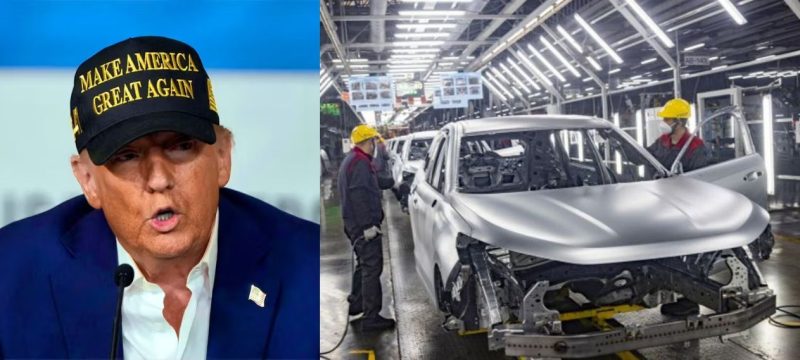The Trump administration has announced a measure to reduce the impact of automotive tariffs, aiming to lower duties on foreign parts used in cars manufactured in the U.S. This move is expected to provide substantial relief to U.S. automakers and their workers.
Commerce Secretary Howard Lutnick described the decision as a significant win for President Trump’s trade policies, stressing that it would benefit companies manufacturing within the U.S. and strengthen partnerships with American workers.
Read more: Trump says India, Pakistan will resolve tensions themselves
The changes are designed to prevent multiple tariffs from applying to vehicles assembled in the U.S. by foreign manufacturers. Now, automakers paying tariffs will not face additional charges on other imported materials like steel and aluminum, which had previously been subjected to separate tariffs. Companies will also be reimbursed for tariffs they have already paid, offering them financial relief.
According to The Wall Street Journal, the adjustment is a response to concerns from the auto industry, especially the Detroit Three, about the negative effects of tariffs on U.S. automakers. A White House official confirmed the changes would be implemented soon.
President Trump is set to visit Michigan to mark his first 100 days in office, which have been marked by aggressive trade policy changes, including tariffs on various imports. This latest move to ease auto tariffs is a part of ongoing tariff adjustments by the administration, showing flexibility amid growing economic concerns.
Earlier, U.S. automakers expressed hope for relief from auto tariffs, especially given Michigan’s importance as a hub for companies like General Motors, Ford, and Fiat Chrysler. Last week, a group of U.S. auto industry organizations wrote to the administration urging Trump to avoid a 25% tariff on imported auto parts.
They argued such an increase would result in higher vehicle prices, lower sales, and increased repair costs for consumers. The letter warned that tariffs could disrupt the global auto supply chain and significantly harm U.S. manufacturing.
Industry leaders also raised concerns about the financial strain tariffs could place on auto suppliers, potentially causing production delays, layoffs, or even bankruptcies. Despite concerns about the broader economic consequences of Trump’s trade policies, this move provides relief to the automotive sector, signaling a strategic adjustment to secure more favorable trade terms.









